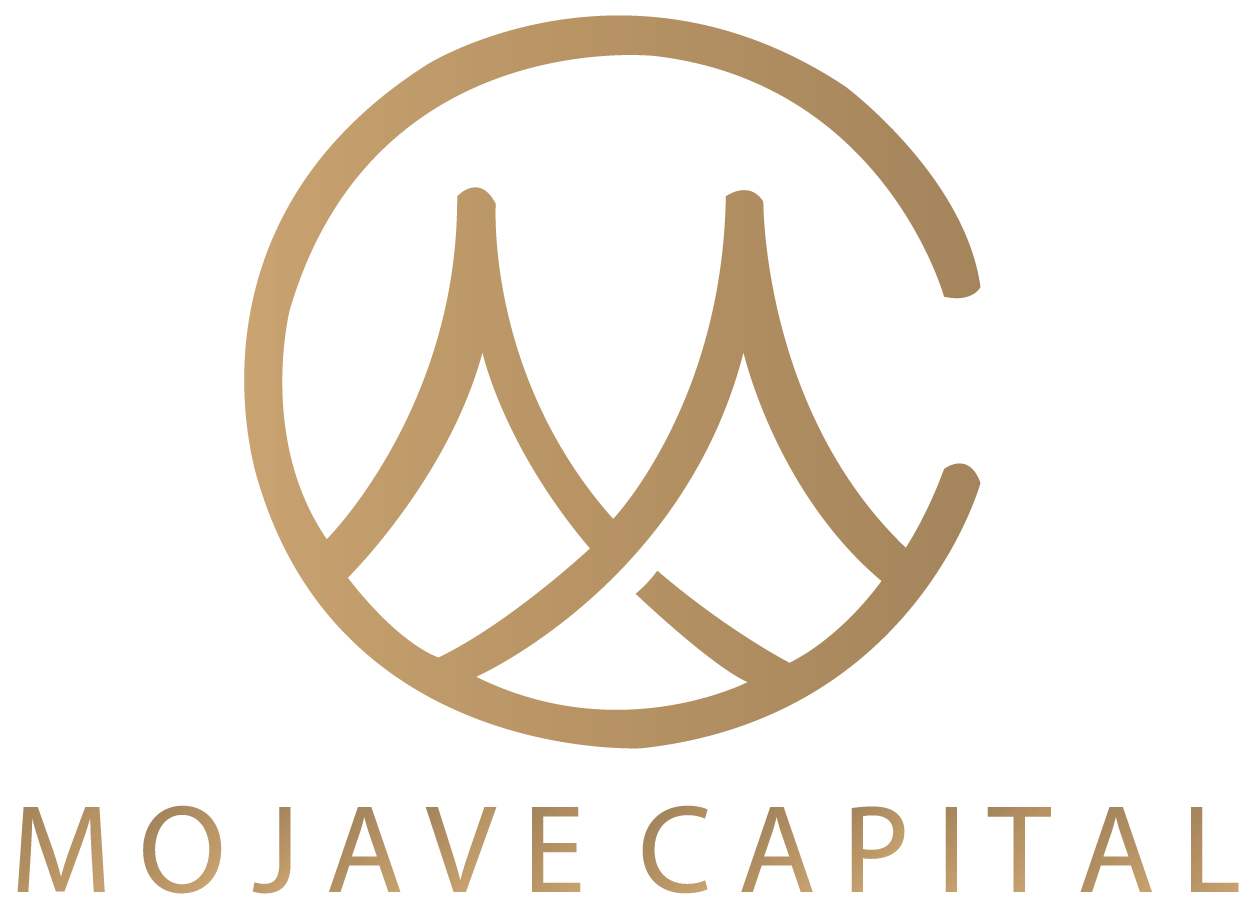
Private Money and TRUST DEED INVESTING
What is Trust Deed Investing?
Trust Deed investing is a way to invest in real estate by lending money to borrowers secured by real property. Trust Deeds can be used for different types of real estate, including Fix and Flips.
The Key Players Involved in a Trust Deed Investment:
YOU, THE INVESTOR: You lend money and earn interest on the loan.
THE BORROWER: This could be a house flipper or developer who needs money to fix up or develop a property.
THE TRUSTEE: A neutral third-party Title and Escrow Company that holds the deed to the property until the loan is repaid.
The key advantage of trust deed investing is that it's secured by real estate. This means that if the borrower defaults on the loan, you, as the investor, have the right to foreclose on the property and sell it to recoup your investment.
The Trust Deed Investment Process
-

Mojave Capital evaluates the loan request and after a full underwriting review and approval, offers the loan to investors for funding
-

Investors choose between available loans/ investments at Mojave Capital.
-

A Deed of Trust is recorded listing the investors and their percentage of ownership in the property.
-

Borrower is granted title to the property once the loan is repaid in full.
-

Upon the maturity of the loan, investors receive a full principal payoff from the borrower.
-

Investors receive monthly interest throughout the duration of the loan specific to the loan terms.
Private Money: Funding Real Estate Investments with Self-Directed IRAs
Traditional IRAs offer tax-advantaged investment savings but limit investment options. Self-directed IRAs (SDIRAs) empower investors to explore alternative avenues like real estate, including Trust Deeds and Fix and Flips. This approach unlocks exciting possibilities for lenders and investors seeking to maximize their investment funds.
Benefits of Self DIrected IRAs for Investors:
•
•
•
•
•
Tax-Sheltered Growth: Profits from fix-and-flips or hard money loans accrue within the SDIRA, shielded from ordinary income taxes. This allows for tax-efficient compounding of returns.
Portfolio Diversification: SDIRAs provide a hedge against market volatility by introducing a tangible asset class (real estate) into your retirement portfolio.
Passive Income: Investing in trust deeds through a self-directed IRA (SDIRA) allows investors to diversify their portfolio as passive real estate investors by lending money to borrowers and receiving monthly payments in their IRA.
Security: The borrower uses a promissory note and a deed of trust on the collateral as security for the loan. The borrower then agrees to pay back the loan plus interest in installments over a set period of time.
Greater Control: You, as the account holder, have the autonomy to choose investment properties and lending opportunities, aligning them with your investment goals.
Fix and Flip Investments and Private Money Lending
During a Fix and Flip, Private Money Lenders invest funds into properties in need of rehabilitation with the intention of reselling them for a profit.
The Fix and Flip Investment Process
-
1. Identify A Property
Investors look for undervalued properties, often distressed homes they can buy at a discount.
-
2. Target Properties
Investors target properties where the repairs will add more value than they cost.
-
3. Invest & Repair
Once the investor buys the property, they'll invest money and effort into renovations and repairs.
-
4. Quick Turnaround
The goal is to sell the renovated property quickly, ideally within a year, to maximize profit.
-
5. Maximize ARV
The After Repair Value (ARV) - the estimated market value after renovations - is key.
-
6. Time To Sell
Investors look to sell for a price that covers the purchase price, renovation costs, and leaves them with a profit.
WHy We Prefer Fix and Flip Investing
•
•
•
POTENTIAL PROFIT: Achieve higher returns through property rehabilitation and resale strategies.
ASSET SECURITY: Properties secure loans, minimizing risk and ensuring investor assurance.
BALANCED INVOLVEMENT: Blend active efforts with passive income potential for optimal returns.
Frequently Asked Questions
Trust Deed Investing
-
Short answer? In a nutshell, a trust deed investment is a private loan that’s secured by real estate.
Trust deed investing is a way for investors to lend money to a borrower for the purpose of purchasing or adding value to a property. The investor’s name is recorded on a deed of trust, which is filed with the county. This deed of trust serves to protect the investor by providing them with collateral in the form of the property. The deed of trust outlines the responsibilities of both the borrower and the lender, and should the borrower fail to meet their obligations, the investor can foreclose on the property to get their money back. -
A mortgage and a deed of trust are both legal documents that create a lien on real property, but they are structured differently. In a deed of trust, the borrower has what’s called, equitable title to the real estate or property. This means they have a right to own the property. Though they don’t yet have legal title to the property because they still owe money to a lender. The borrower gives legal title—the actual ownership—to a trustee, who holds it for a beneficiary. In this case, the lender. This arrangement serves as collateral on the promissory note to the loan. If a borrower fails to make their loan payments according to the agreement (note), a deed of trust gives the trustee the power of sale, allowing the trustee to foreclose on the property without going to court. This type of foreclosure is referred to as a non-judicial foreclosure, and the trustee can sell the property at their discretion when it is in the best interests of the lender (the investor).
Unlike a deed of trust, a mortgage requires a court process to foreclose on a property and the lender must prove the borrower has defaulted on the loan in order to do so.
-
Speed and Flexibility. Mojave Capital offers borrowers an attractive combination of speed and flexibility. With its extensive investor base, Mojave Capital can provide funds quickly to finance a variety of real estate projects.
As a licensed and regulated mortgage broker, Mojave Capital has greater flexibility in its loan selection process than traditional banking institutions.
The majority of loans are underwritten for short-term periods of 6 to 12 months. Due to these short periods, Borrowers are willing to pay higher rates of interest in order to obtain needed financing to acquire and complete projects quickly.
-
Mojave Capital primarily invests in real estate projects in Las Vegas, NV, and surrounding states.
-
Mojave Capital requires a $25,000 minimum investment amount per Trust Deed investment.
Private Money and Self Directed IRAs
-
A Self-Directed IRA allows you to invest in a wider range of assets than a traditional IRA. Traditional IRAs typically limit investments to stocks, bonds, and mutual funds held by a custodian. With a Self-Directed IRA, you have more control over your retirement investments and can choose alternative assets such as real estate, private equity, and tax liens.
-
Similar to a traditional IRA, you set up an account with a custodian who holds your assets. The key difference is you decide what investments to make within IRS regulations.
-
Greater Investment Control: You have the freedom to choose investments that align with your financial goals and risk tolerance.
Potential for Higher Returns: Alternative assets may offer the potential for higher returns than traditional IRA options.
Tangible Asset Investment: You can invest in real estate or other tangible assets that may provide a hedge against inflation.
-
TBD
-
TBD
Fix and Flip Investing
-
Fix and flip investing is a real estate strategy where investors buy undervalued properties that need renovation or repair. The goal is to fix them up, increase their value, and then sell them for a profit.
-
Consider the purchase price, potential renovation costs, after-repair value (ARV), and local market conditions. Factor in holding costs like property taxes and insurance while the property is being renovated.
-
Mojave Capital can help fix and flip investors by providing:
Hard money loans: These short-term, asset-based loans are ideal for financing the purchase and renovation of investment properties. Mojave Capital's fast closing times can help you secure a property quickly.
Investment expertise: The team at Mojave Capital may have experience in the local real estate market and can offer valuable insights.
-
What are the benefits of using a hard money loan for fix and flip projects?
Fast closings: Secure a property quickly to stay ahead of the competition.Flexible qualification requirements: Qualify based on the property's value, not just your credit score.
Funding for non-traditional properties: Finance projects that traditional banks may not approve for.
Ready to take the next step towards your real estate goals?
Fill out the form below with your contact information and a brief message outlining how we can support you. One of our dedicated representatives will get back to you as soon as possible to provide personalized guidance and answer any questions you may have.
